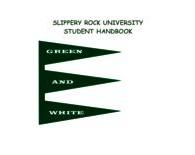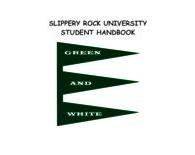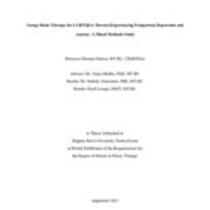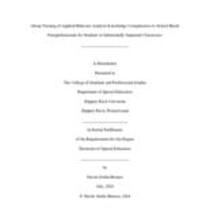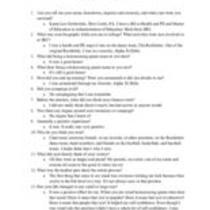- Title
- Green and White
- Year Created
- 1982
- Abstract
-
The Green and White student handbook was published from 1927-2003 and then continued in a digital format until 2013. The handbook contained rules and regulations for students concerning dining, dorm life, smoking, dress codes, etc. The Green and White also contained ...
Show moreThe Green and White student handbook was published from 1927-2003 and then continued in a digital format until 2013. The handbook contained rules and regulations for students concerning dining, dorm life, smoking, dress codes, etc. The Green and White also contained helpful information about the college such as calendars for sports and other events, fees, hours of various campus offices, campus services available to students, and, of course, the Alma Mater.
Show less - Sub-title
- Student Handbook
- Title
- Green and White
- Year Created
- 1991
- Abstract
-
The Green and White student handbook was published from 1927-2003 and then continued in a digital format until 2013. The handbook contained rules and regulations for students concerning dining, dorm life, smoking, dress codes, etc. The Green and White also contained ...
Show moreThe Green and White student handbook was published from 1927-2003 and then continued in a digital format until 2013. The handbook contained rules and regulations for students concerning dining, dorm life, smoking, dress codes, etc. The Green and White also contained helpful information about the college such as calendars for sports and other events, fees, hours of various campus offices, campus services available to students, and, of course, the Alma Mater.
Show less - Sub-title
- Student Handbook
- Title
- Green and White
- Year Created
- 2006
- Abstract
-
The Green and White student handbook was published from 1927-2003 and then continued in a digital format until 2013. The handbook contained rules and regulations for students concerning dining, dorm life, smoking, dress codes, etc. The Green and White also contained ...
Show moreThe Green and White student handbook was published from 1927-2003 and then continued in a digital format until 2013. The handbook contained rules and regulations for students concerning dining, dorm life, smoking, dress codes, etc. The Green and White also contained helpful information about the college such as calendars for sports and other events, fees, hours of various campus offices, campus services available to students, and, of course, the Alma Mater.
Show less - Sub-title
- Student Handbook
- Title
- Green and White
- Year Created
- 2008
- Abstract
-
The Green and White student handbook was published from 1927-2003 and then continued in a digital format until 2013. The handbook contained rules and regulations for students concerning dining, dorm life, smoking, dress codes, etc. The Green and White also contained ...
Show moreThe Green and White student handbook was published from 1927-2003 and then continued in a digital format until 2013. The handbook contained rules and regulations for students concerning dining, dorm life, smoking, dress codes, etc. The Green and White also contained helpful information about the college such as calendars for sports and other events, fees, hours of various campus offices, campus services available to students, and, of course, the Alma Mater.
Show less - Sub-title
- Student Handbook
- Title
- Green and White
- Year Created
- 2012
- Abstract
-
The Green and White student handbook was published from 1927-2003 and then continued in a digital format until 2013. The handbook contained rules and regulations for students concerning dining, dorm life, smoking, dress codes, etc. The Green and White also contained ...
Show moreThe Green and White student handbook was published from 1927-2003 and then continued in a digital format until 2013. The handbook contained rules and regulations for students concerning dining, dorm life, smoking, dress codes, etc. The Green and White also contained helpful information about the college such as calendars for sports and other events, fees, hours of various campus offices, campus services available to students, and, of course, the Alma Mater.
Show less - Sub-title
- Student Handbook
- Title
- Green and White
- Abstract
-
The Green and White student handbook was published from 1927-2003 and then continued in a digital format until 2013. The handbook contained rules and regulations for students concerning dining, dorm life, smoking, dress codes, etc. The Green and White also contained ...
Show moreThe Green and White student handbook was published from 1927-2003 and then continued in a digital format until 2013. The handbook contained rules and regulations for students concerning dining, dorm life, smoking, dress codes, etc. The Green and White also contained helpful information about the college such as calendars for sports and other events, fees, hours of various campus offices, campus services available to students, and, of course, the Alma Mater.
Show less
- Title
- Group music therapy for LGBTQIA+ parents experiencing postpartum depression and anxiety
- Abstract
-
A mixed methods research study involving an eight-week music therapy group was facilitated virtually for LGBTQIA+ parents experiencing postpartum mood and anxiety disorders. The Edinburgh Postnatal Depression Scale was administered upon first session and last session...
Show moreA mixed methods research study involving an eight-week music therapy group was facilitated virtually for LGBTQIA+ parents experiencing postpartum mood and anxiety disorders. The Edinburgh Postnatal Depression Scale was administered upon first session and last session to capture potential impact of music therapy group on mental health over time. The Brief Mood Introspection Scale was administered at the beginning and end of each session to capture short term impact of group music therapy. A semi-structured focus group was facilitated to capture experiences of and feedback from participants, and interviews were scheduled with participants who did not attend the focus group. Interviews and the focus group were transcribed and analyzed and six themes were identified: community and solidarity built around shared experiences, music within and beyond the group, expansiveness and generativity in parenthood, response to experience, attendance and timing challenges, and accessibility. The Edinburgh Postnatal Depression Scale did not show statistically significant changes in mood over the course of the eight-week group but was limited by sample size and an outlier score. The Brief Mood Introspection Scale showed more significant trends in increased pleasant mood, decreased stress, and increased positivity after the session. When LGBTQIA+ parents were able to attend the session, they reported meaningful impacts despite attendance challenges. Findings may be useful in developing music therapy practice and research.
Show less - Year Issued
- 2023
- Author
- Nelson, Maryrose Nieman
- Sub-title
- a mixed methods study
- Title
- Group training of applied behavior analysis knowledge competencies to school-based paraprofessionals for students in substantially separated classrooms
- Year Issued
- 2024
- Abstract
-
This study explores the efficacy of Applied Behavior Analysis (ABA)-based training for paraprofessionals supporting students with Autism Spectrum Disorder (ASD) in specialized educational settings. The research, conducted in an urban northeastern public school distri...
Show moreThis study explores the efficacy of Applied Behavior Analysis (ABA)-based training for paraprofessionals supporting students with Autism Spectrum Disorder (ASD) in specialized educational settings. The research, conducted in an urban northeastern public school district, assessed historical data. Using a pretest/posttest quasi-experimental design, thirty-five first-year paraprofessionals underwent structured training across three modules. Results demonstrated significant knowledge gains: Module One saw a 14% increase, Module Two a 16% increase, and Module Three an 8% increase. These findings underscore the importance of targeted professional development in enhancing paraprofessionals' effectiveness in ABA-based classrooms for students with ASD.
Show less - Author
- Grube-Benson, Nicole



